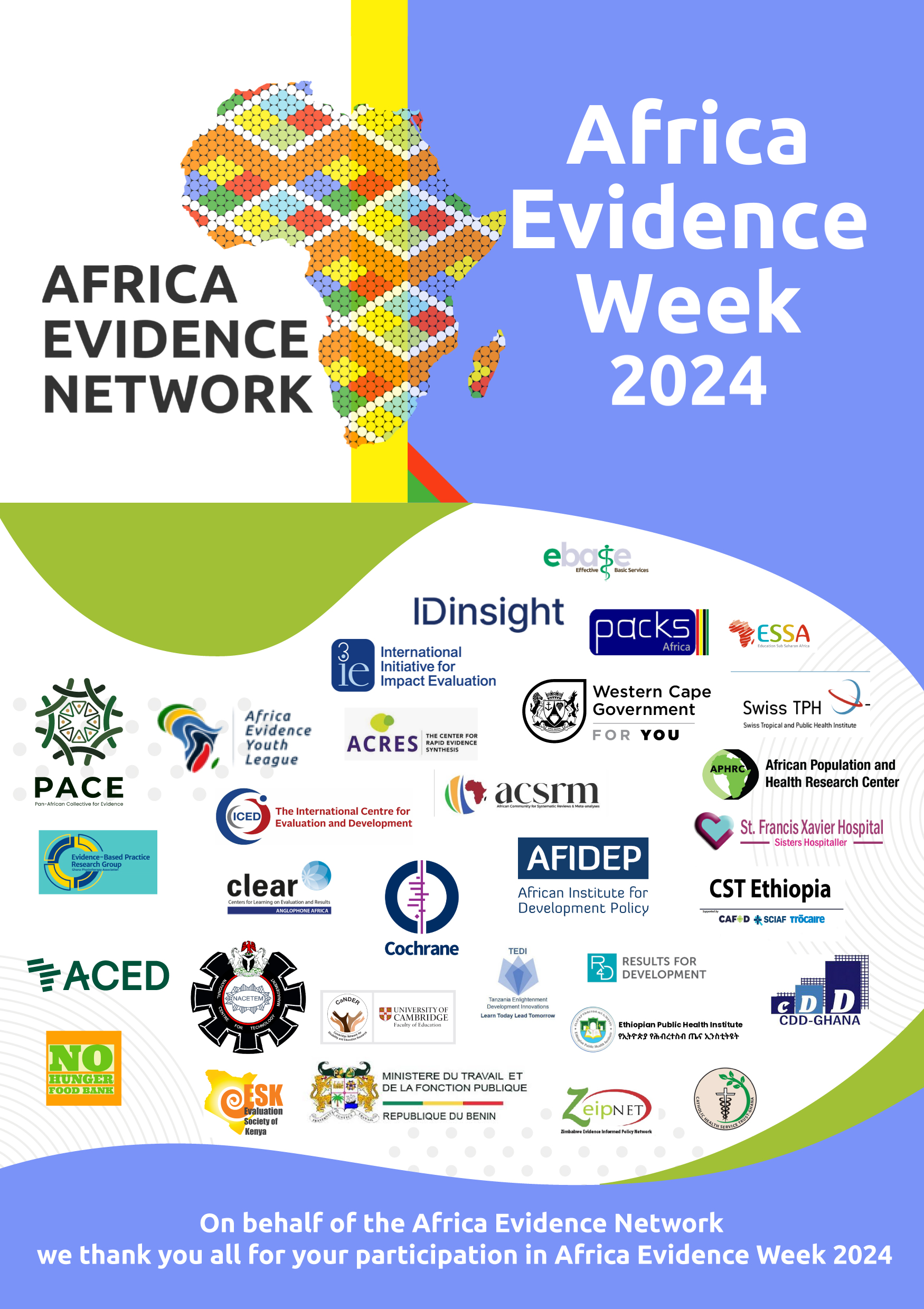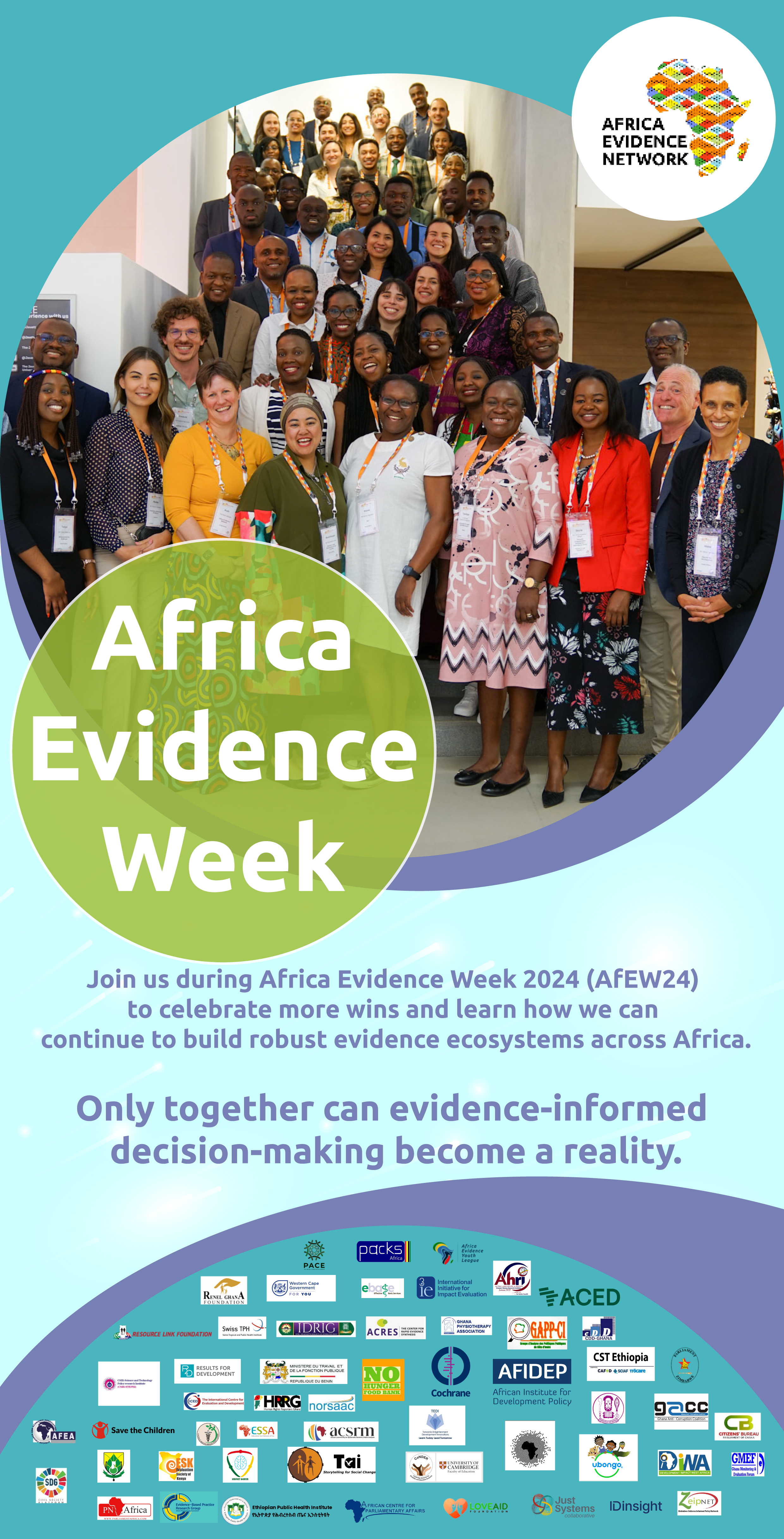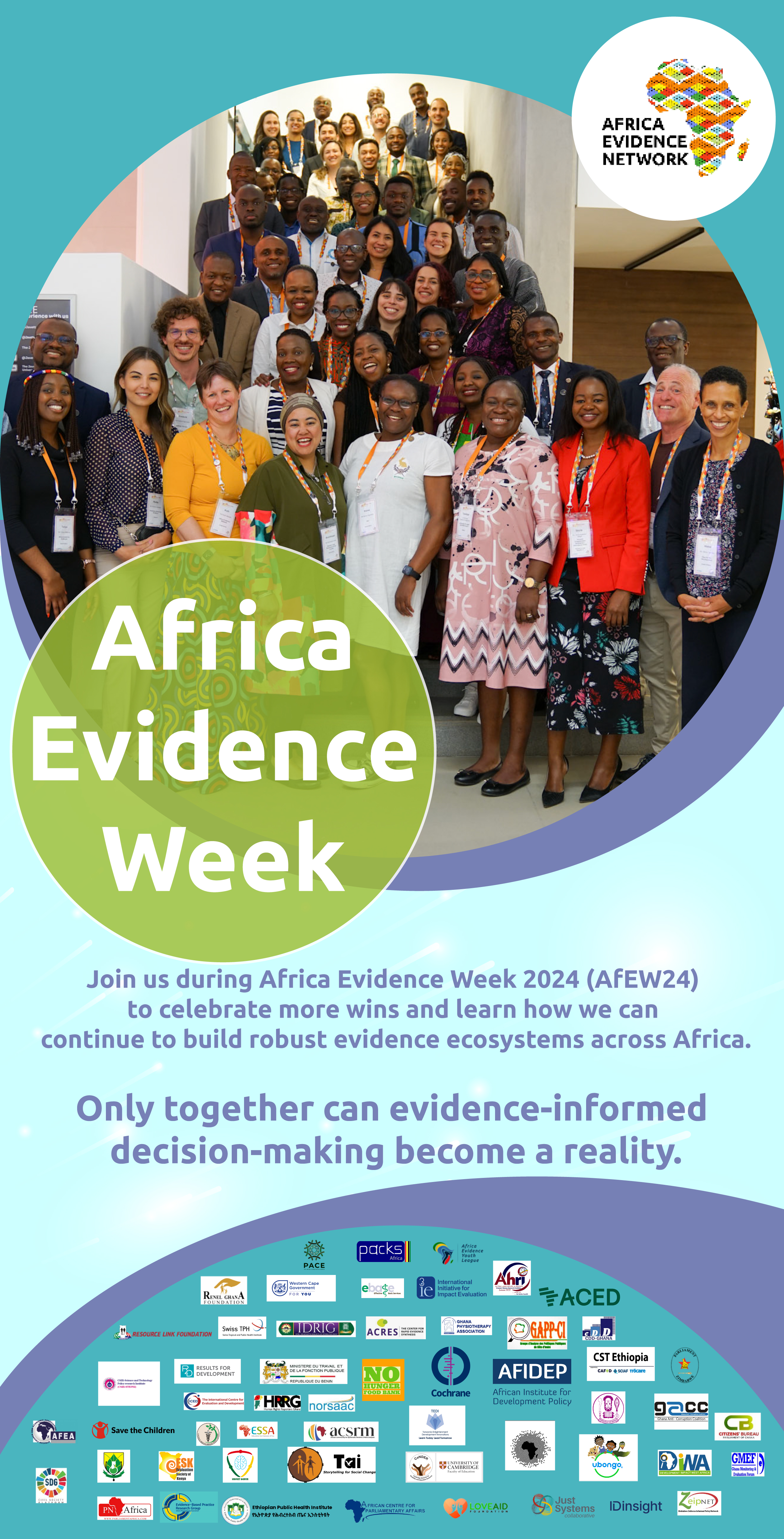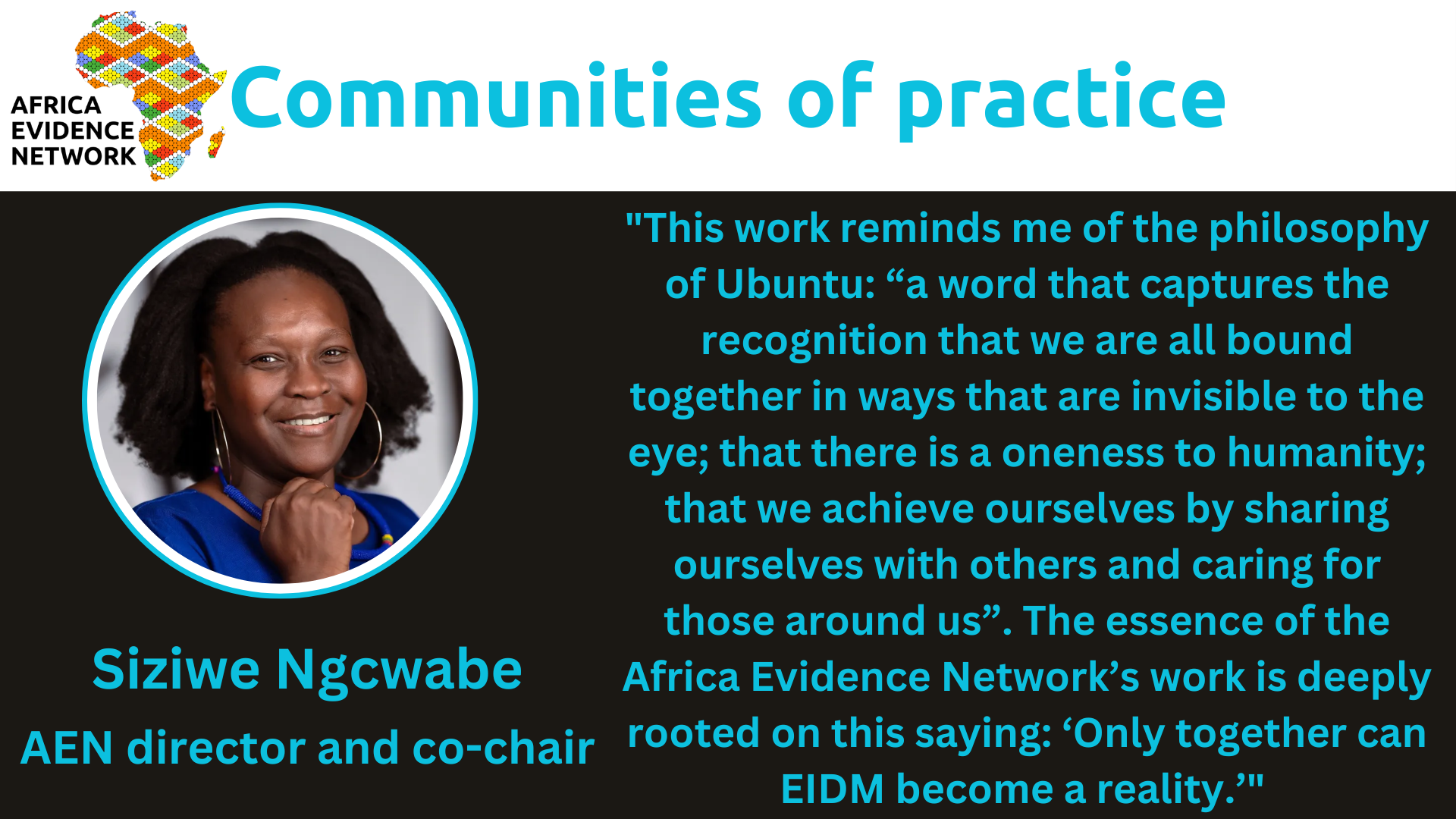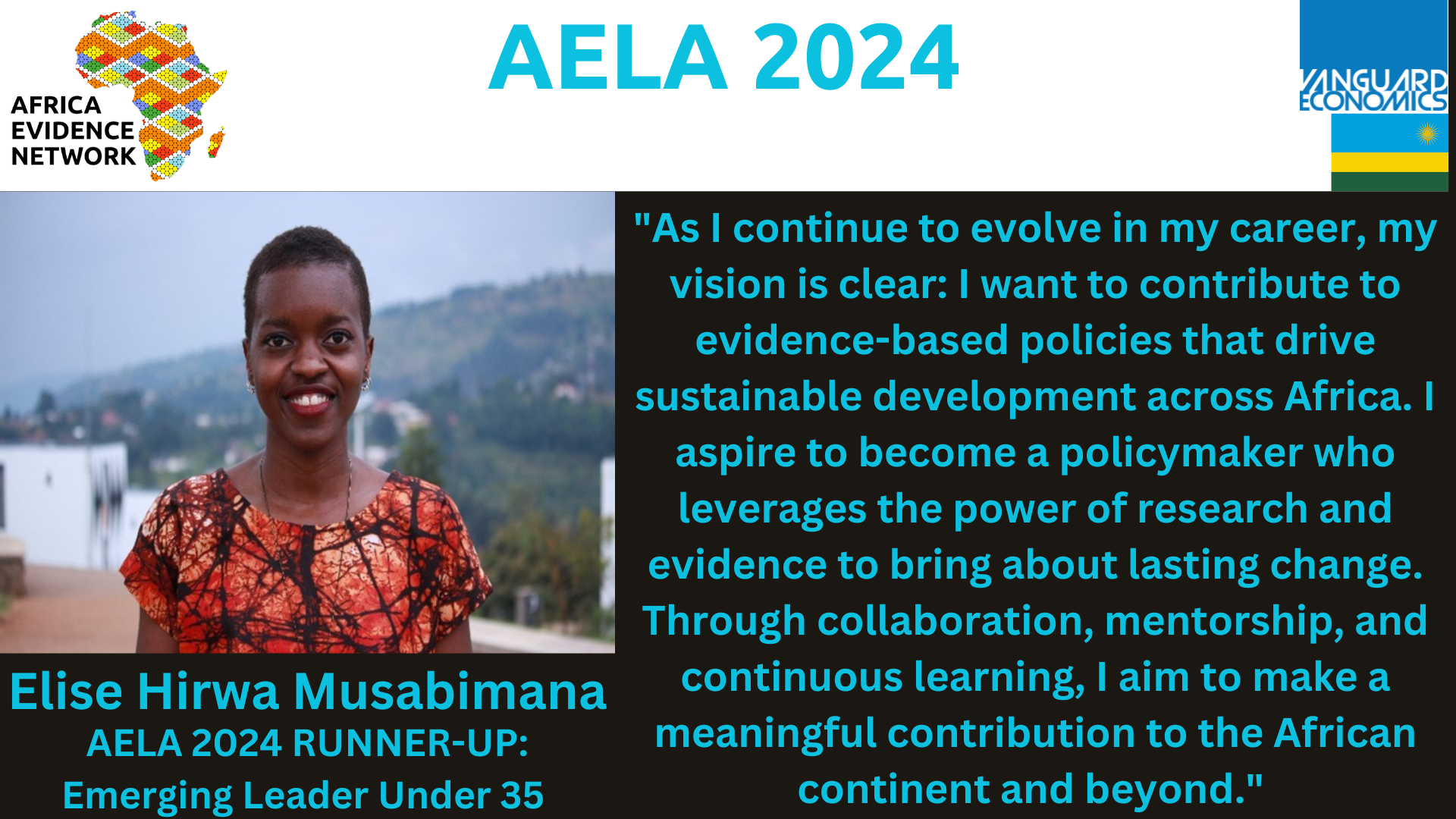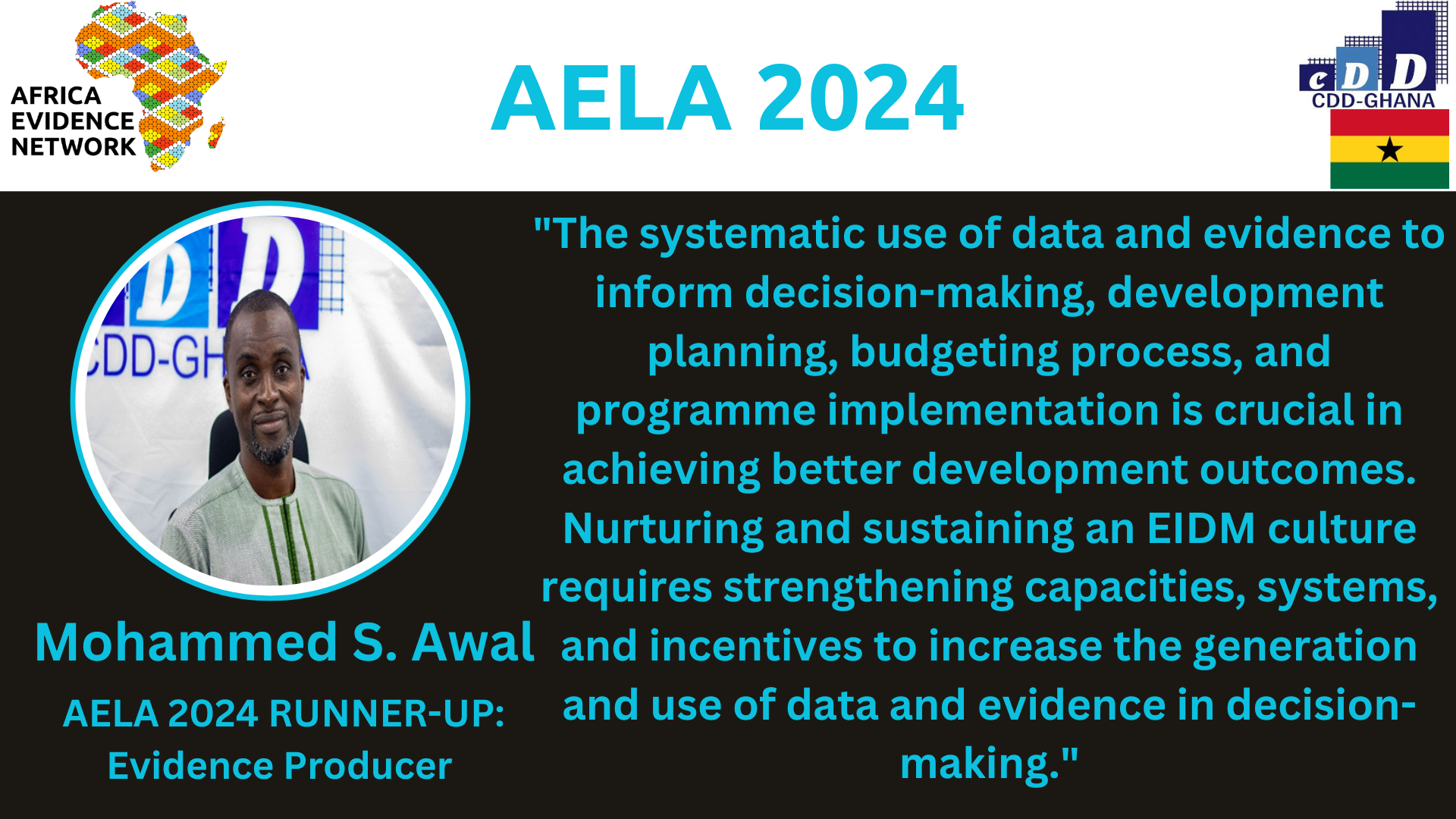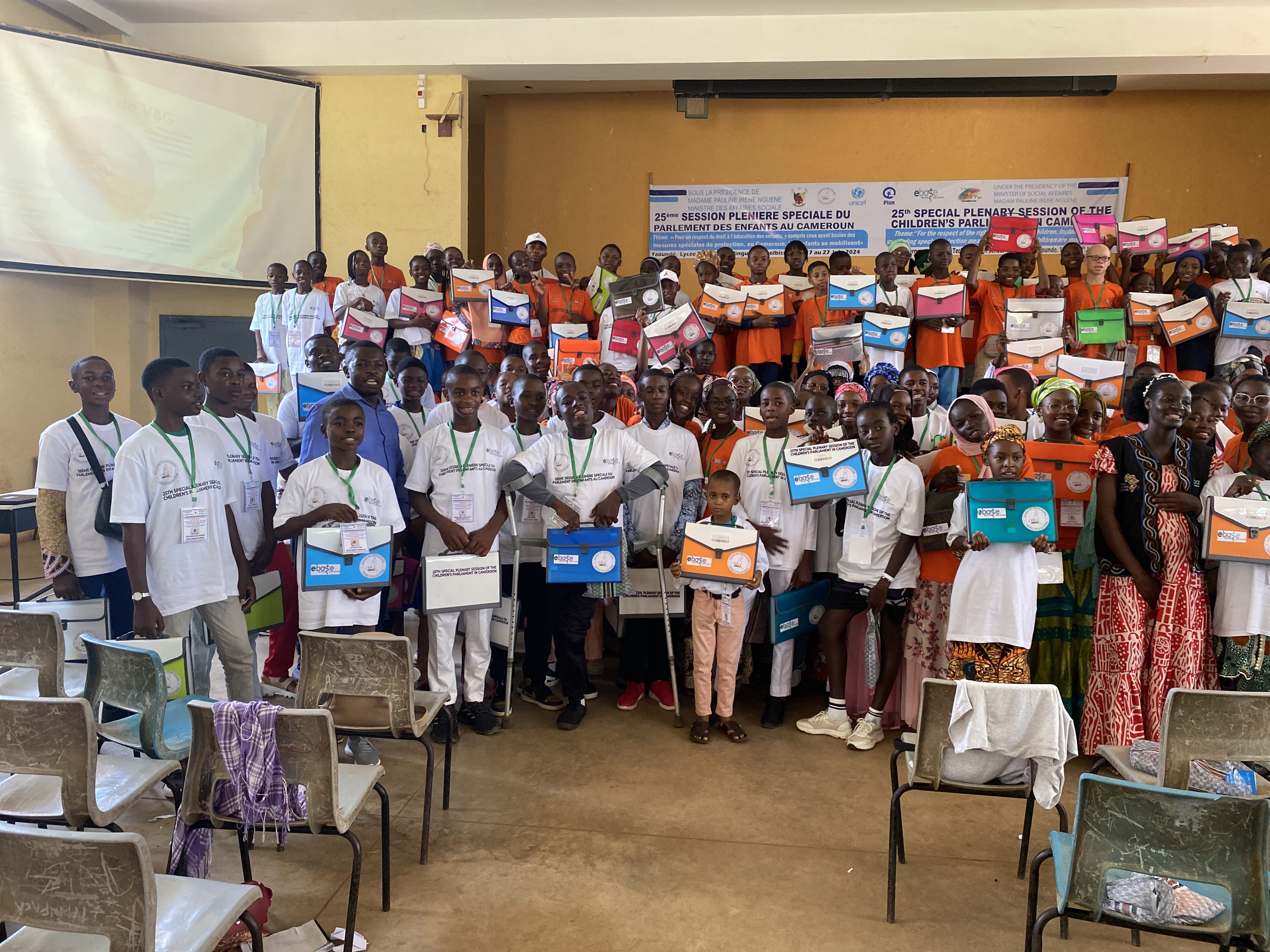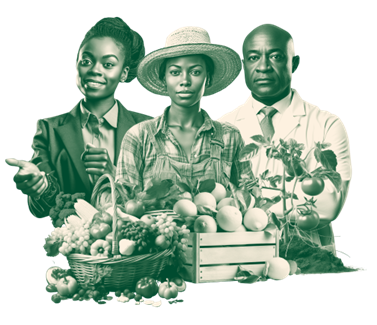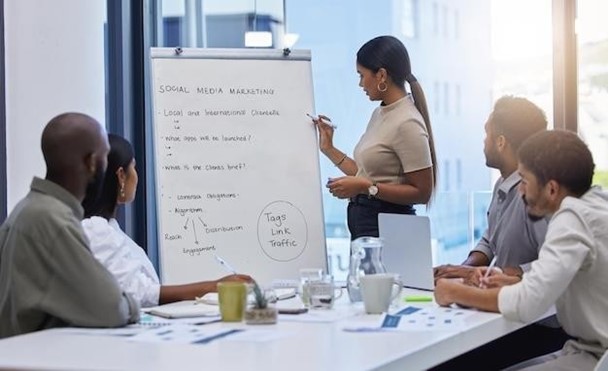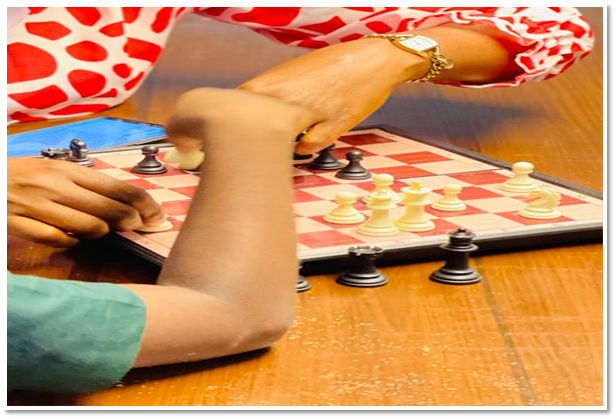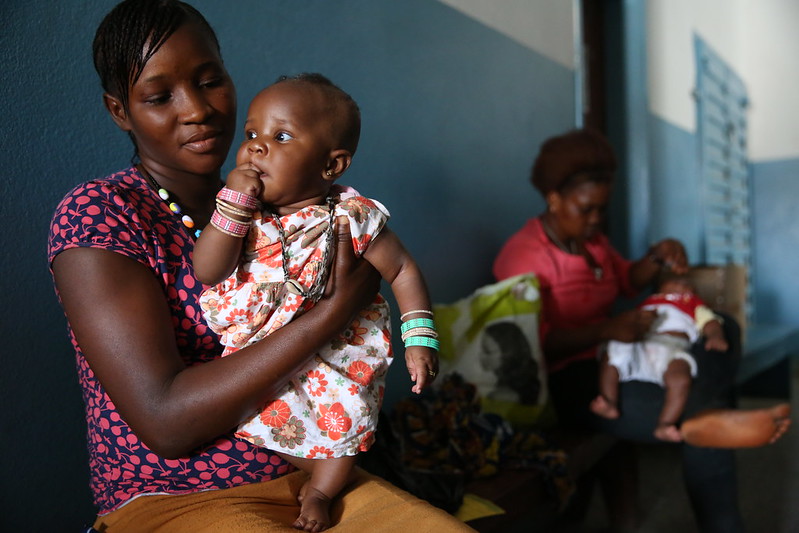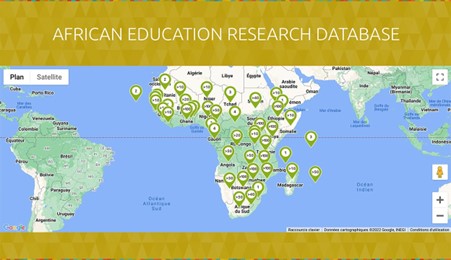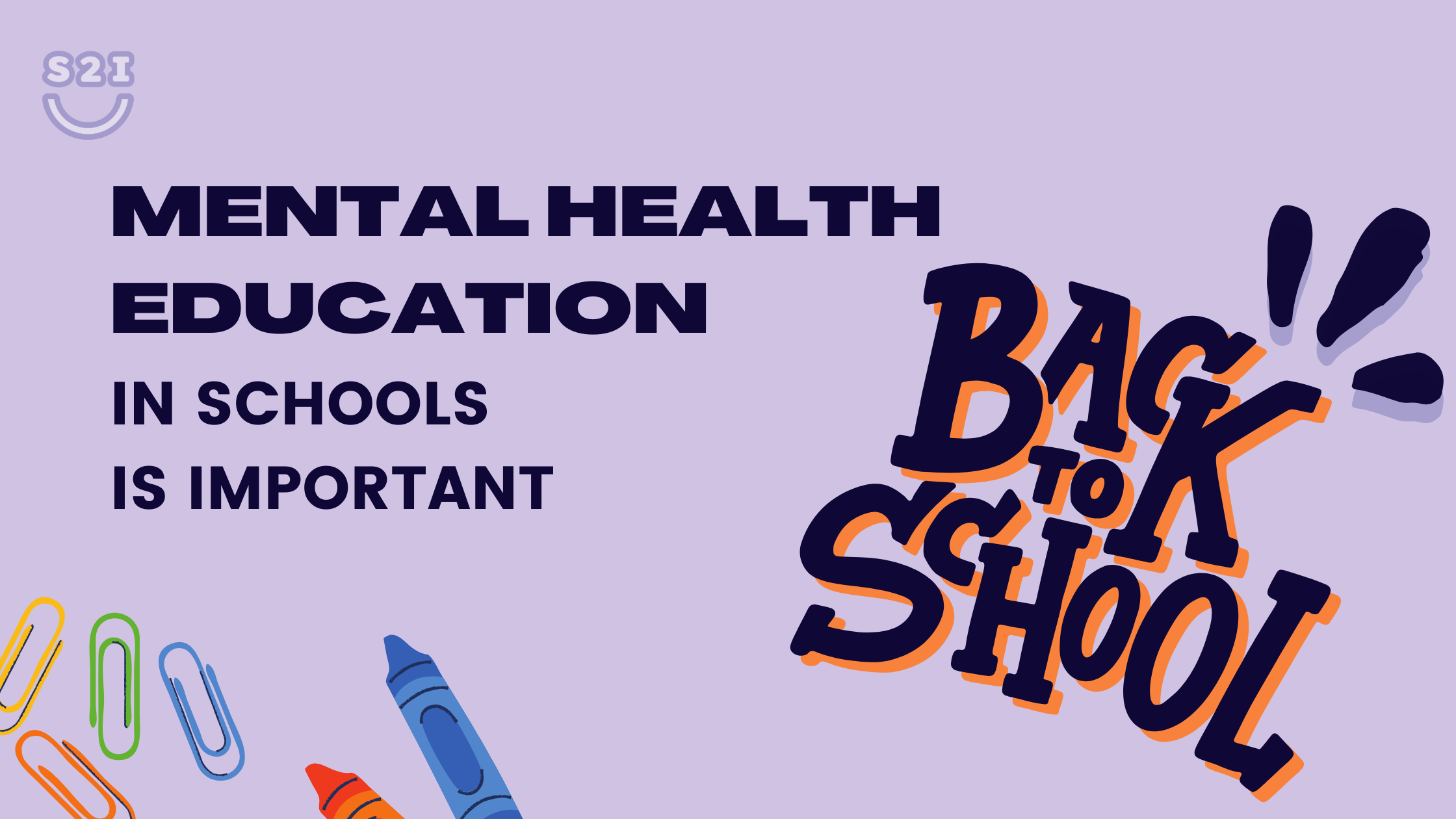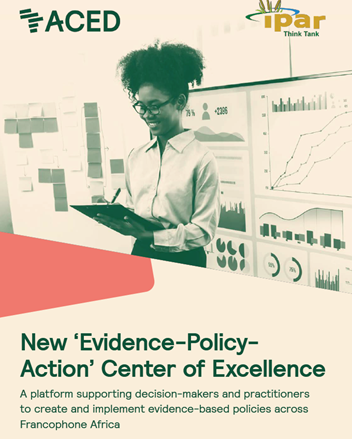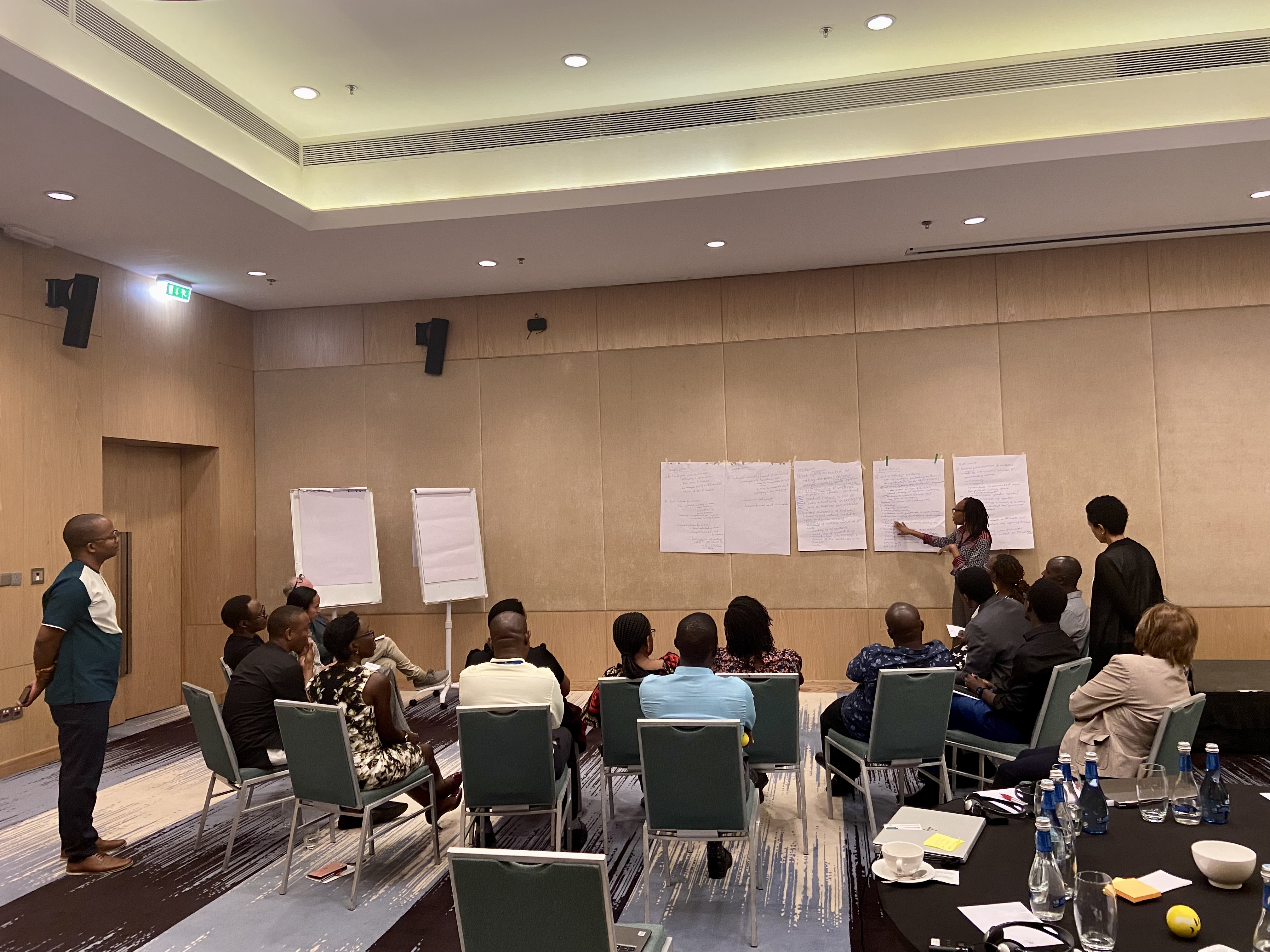
Photo: Africa LEEPS partner organizations mapping out a vision for partnership at a launch workshop in Kigali, Rwanda, August 2023
The Africa Learning Together to Advance Evidence and Equity in Policymaking to Achieve the Sustainable Development Goals (Africa LEEPS) Partnership aims to strengthen knowledge translation, focusing on synthesising, disseminating, and exchanging evidence in Sub-Saharan Africa. The partnership promotes gender equity throughout the policymaking process and unites leading evidence organisations to advance Sustainable Development Goal (SDG) priorities like clean energy, reproductive health, climate action, and governance.
In the spirit of going far together, the Africa LEEPS partners regularly come together to enhance evidence systems through dialogue, knowledge exchange, and sharing lessons learned.
Results for Development (R4D), an international NGO, serves as the engagement and learning coordinator for Africa LEEPS. The partnership is jointly funded by the International Development Research Centre (IDRC), the William and Flora Hewlett Foundation, and Robert Bosch Stiftung GmbH.
In this blog, we outline four highlights you should know about the Africa LEEPS Partnership
1) Led by African Organisations with Deep Contextual Understanding
As the Africa LEEPS partnership continues to grow, its approach of centering local organisations to lead policy initiatives is evolving from the traditional top-down approach. Reflecting on this approach, a partner shared during an Africa LEEPS-hosted session at USAID's Agency Learning and Evidence Month “We [Africa LEEPS Partners] are trying to avoid a top-down approach, particularly considering that our partners bring in their own ecosystem that can bring in best practices adapted to local realities and the changing politics.” You can access and watch the full session to hear more insights from the LEEPS partners.
This commitment of grounding initiatives in local expertise is reflected in the diverse range of technical capacity strengthening and policy engagement activities led by the three key African initiatives within the partnership:
- The Centre d'Excellence Evidence Policy Action, established by the African Center for Equitable Development (ACED), operates in partner countries including Benin, Burkina Faso, Cote d’Ivoire, Niger, Senegal, and Togo. The initiative’s consortium partner is Initiative Prospective Agricole et Rurale (IPAR).
- The East African Regional Evidence Synthesis Initiative (EARESI), established by the Centre for Rapid Evidence Synthesis (ACRES), operates in partner countries, including Ethiopia, Malawi, Tanzania, and Uganda. The initiative’s consortium partners include the Ethiopian Public Health Institute, Malawi Liverpool Wellcome Programme, and The Center for Reforms, Innovation, Health Policies and Implementation Research.
- The Alliance for Evidence and Equity in Policy-making in Africa, established by the African Institute for Policy Development (AFIDEP), operates in partner countries, including Kenya and Nigeria, with over 200 researchers and policymakers. The initiative’s consortium partners include The African Institute for Health Systems and Health Policies, the African Research and Impact Network (ARIN), and The School of Gender and Women’s Studies at Makerere University.
Africa LEEPS partners have established strong networks, such as AFIDEP's partnership with Kenya’s Ministry of Health, ACRES's collaboration with Uganda’s Ministry of Energy, and ACED’s evidence synthesis efforts between Benin and Togo. The success of Africa LEEPS initiatives relies on the robust relationships, networks, and trust built by EIP experts within their respective countries. The Africa LEEPS partners are exemplary in fostering these critical partnerships.
2) Knowledge Translation to Enhance Policy Equity and Sustainability
In Africa, LEEPS knowledge translation activities aim to enhance the relevance and accessibility of evidence. The activities facilitate the production of contextualised and appropriately tailored information to address local priorities. Furthermore, the activities strengthen institutional structures and processes to promote collaboration between researchers and policymakers.
Broadly, partner organisations raise awareness and strengthen individual, organisational, and institutional capacities.
The Centre d'Excellence Evidence, Policy Action initiative, is collaborating with the National Institute for Statistics and Economic and Demographic Studies of Togo to develop and implement a data quality assurance and an ethical instrument called the "VISA statistique." Included in the VISA statistique is an evidence brief highlighting the aligned, collaborative learning between Benin and Togo.
The Africa LEEPS partnership also demonstrates innovative approaches in sectoral areas, such as clean energy. The partnership accentuates the benefit of advancing and operationalising a transition that uses evidence to face the contextual challenges and culture needed to consider in this growth. In support of the transition, the East African Regional Evidence Synthesis Initiative (EARESI) is conducting similar work alongside the Ministry of Energy and Mineral Development in Uganda. The Ministry in Uganda is seeking support from EARESI in developing a research agenda and areas of cooperation for renewable energy to promote policies informed by the best available evidence to lead to a more sustainable and equitable future for all.
Additionally, The Africa LEEPS partners are dedicated to working to uplift and expand the EIP space. The Alliance for Evidence and Equity in Policy-making initiative has equipped over 200 researchers and policymakers from 36 African countries with skills to bridge the gap between research and policy decisions through a two-week intensive virtual training session. The training tackled key challenges hindering EIP practices in Africa, including limited researcher-policymaker interaction, political influences, and inadequate knowledge-sharing mechanisms. Participants received tools and strategies to overcome these obstacles. Africa LEEPS focuses on knowledge translation through many different avenues, and this is just the beginning, but it also recognises the strength in unity and power in contextualisation.
3) Home to Evidence Superstars and Emerging Leaders
The Africa LEEPS partnership is unique because it is home to incredible evidence superstars and champions of the EIDM space. The partnership is supporting a pipeline of emerging leaders in EIDM. Their hard effort and contributions in the EIDM space were recognised in this year’s Africa Evidence Leadership (AEL) award. Ismael Kawooya, a member of EARESI, received the AEL award for Evidence Mediator, and Violet Murungu, a member of The Alliance for Evidence and Equity in Policy-making in Africa, received the AEL award for Evidence Award.
In addition to these two awards, the AEL award introduced a new category this year: Young and Emerging Leaders under 35 years old. Africa LEEPS partner Firmaye Bogale (EARESI), a dynamic young leader at the Ethiopian Public Health Institute, won this category. EIP is a particularly exciting field for Firmaye as it allows her to work across multiple sectors and continually learn and adapt. She says, “The collaborative nature of EIDM keeps me constantly learning and adapting, making it an exciting and intellectually stimulating field.”
Firmaye is dedicated to advancing EIDM in Ethiopia by fostering a culture where evidence-based practices are central to policymaking and program development. She focuses on capacity building and knowledge translation, working to enhance both institutional and individual capabilities. “Capacitating individuals is essential for embedding EIDM thinking into our everyday work,” she explains. Firmaye actively provides training and mentorship in her work, delivering sessions on systematic reviews, rapid reviews, and policy brief development. She advocates for evidence-informed policies through workshops, seminars, and publications, emphasising the importance of research in tackling public health challenges. Projects and partnerships Firmaye is a part of, like The Africa LEEPS and the DG-tool, further highlight her dedication to building a robust, evidence-based future for Ethiopia and beyond. Firmaye also acknowledges that evidence communities such as the Africa Evidence Network and Africa Evidence Youth League provide invaluable platforms for collaboration, brainstorming, and support.
4) Rich Collaborative Partnership – Opportunities to Learn & Exchange
The Africa LEEPS aims to foster a learning partnership where peers come together to learn, exchange knowledge, share experiences, and develop practical tools to tackle complex policy challenges. The partnership creates space for tacit “how to” knowledge exchange and for sharing and jointly adapting, developing, or piloting practical tools to tackle complex challenges in dynamic policy systems. The importance of and value in peer learning is also reflected in the approach the different initiatives are taking to spread evidence use practices, such as convening country-level EIP stakeholders and building regional communities of practice.
Through technical working groups facilitated by R4D—focusing on Communications and Knowledge Management, Monitoring, Evaluation, and Learning (MEL), and Gender—organisations engage on cross-cutting topics, share practices, brainstorm strategies, and develop tools to support their activities, and learning together from external experts. Quarterly meetings to foster community building and strengthen relationships, provide a forum for sharing activity updates, challenges, and lessons learned, and create space for joint reflection on how the partnership can continue to support and serve country-level initiatives.
The partnership's unique, partner-centered, and demand-driven approach ensures that engagement and support systems are responsive to partners' needs, with ongoing adjustments to improve collaboration.
Stay Connected with Africa LEEPS
As the African proverb states, "If you want to go fast, go alone. If you want to go far, go together." The Africa LEEPS Partnership is committed to going far together, and we want to connect with other actors- funders, policymakers, practitioners, and knowledge brokers in the region. You can learn more about the partnership and the impact made so far in our six-month progress report. Stay updated on our ongoing and future endeavours by signing up for our newsletter and following us on LinkedIn. We would love to stay connected!
About the authors:
Fanny Bondje-Jackson is a Senior Program Associate at Results for Development (R4D), an international NGO that serves as the engagement and learning coordinator for The Africa LEEPS Partnership. Ms. Bondje-Jackson is an early career professional with experience working in youth support and development, refugee assistance, and community health support in Sub-Saharan Africa. She is a senior program associate on the Evaluation and Adaptive Learning team at R4D. She currently supports the Africa LEEPS Partnership in facilitating interactive and engaging partner knowledge exchanges and collaborative learning sessions, particularly through the various working groups. Previously, she has worked on R4D’s RF MERL project, co-creating and co-designing development solutions that innovate on traditional monitoring and evaluation approaches, in order to support governance and accountability mechanisms for community health systems in Mali. She has also worked with the Health Systems Strengthening Accelerator program to support an equitable community health workforce in Côte d’Ivoire through recruitment, training and financing. Ms. Bondje-Jackson holds a master’s degree in humanitarianism, aid, and conflict from the School of Oriental and African Studies (University of London).
Abeba Taddese is a senior program director and practice lead for Evidence for Decision-Making at Results for Development (R4D). She currently serves as the project lead for R4D’s role as engagement and learning coordinator of the Africa LEEPS Partnership by providing overall strategic direction for the partnership, lead all operational and reporting activities, and serve as the primary point of contact for interactions with country teams, donors, and other external partners. Her work outside of Africa LEEPS is focused on policy processes, evidence systems, and collaborative learning approaches to strengthen the use of evidence in decision-making. Ms. Taddese led the Partnership for Evidence and Equity in Responsive Social Systems (PEERSS). PEERSS brought together 13 country teams across Africa, Asia, Latin America and the Caribbean, Europe, and the Middle East to advance evidence-informed policymaking, with a focus on social policies and sustainable development goals.
Previously Ms. Taddese was the executive director and co-founder of Results for All, an initiative funded by the William and Flora Hewlett Foundation. There Ms. Taddese led and supported research and collaborative learning activities aimed at strengthening the use of evidence in policy and practice decisions. Before her work at Results for America, Ms. Taddese was a program officer at Results for Development. She supported and led health systems strengthening activities in areas including human resources for health, the use of mobile phones and innovative IT solutions in the health sector, and expansion of health coverage to poor and vulnerable populations. Ms. Taddese holds an MA in international relations from the Johns Hopkins School of Advanced International Studies.
Firmaye Bogale has over a decade of experience in the field of public health, having effectively navigated clinical and non-clinical healthcare realms. Her experience encompasses key roles in primary healthcare delivery, health program evaluation, public health research, knowledge translation, and evidence-informed decision-making. With a master’s degree in public health, she currently leads the Knowledge Translation Directorate at the Ethiopian Public Health Institute in the capacity of a directorate director. In this capacity, she leads and works on a range of initiatives and projects aimed at translating scientific evidence into actions for informed decision-making in healthcare. Notable among her engagements are her involvement in projects such as the Partnership for Evidence and Equity in Responsive Social Systems (PEERSS), her instrumental role in assessing Ethiopia’s health technology assessment landscape, and the development of the country's health technology assessment roadmap. Firmaye has authored and co-authored over 20 evidence synthesis products and research papers, reflecting her commitment to advancing evidence-informed decision-making.
She is passionate about contributing to the advancement of the EIDM space especially in Africa. To this effect, she works on capacity building of researchers, knowledge translators, and decision-makers at different levels focused on knowledge translation in general and on specific aspects like systematic review development. Firmaye's engagement extends to global and regional links, as she actively participates in networks dedicated to evidence-informed decision-making, including the Africa Evidence Youth League and the Ethiopian Knowledge Translation Center for Health, where she is one of the lead trainers of the comprehensive systematic review and scoping review training program. Her advocacy efforts encompass diverse platforms, where she shares insights through presentations and panel discussions. Firmaye is dedicated to advancing evidence-based decision-making methods, actively seeking to explore contextualisable approaches for scientific evidence utilisation in health decision-making.
